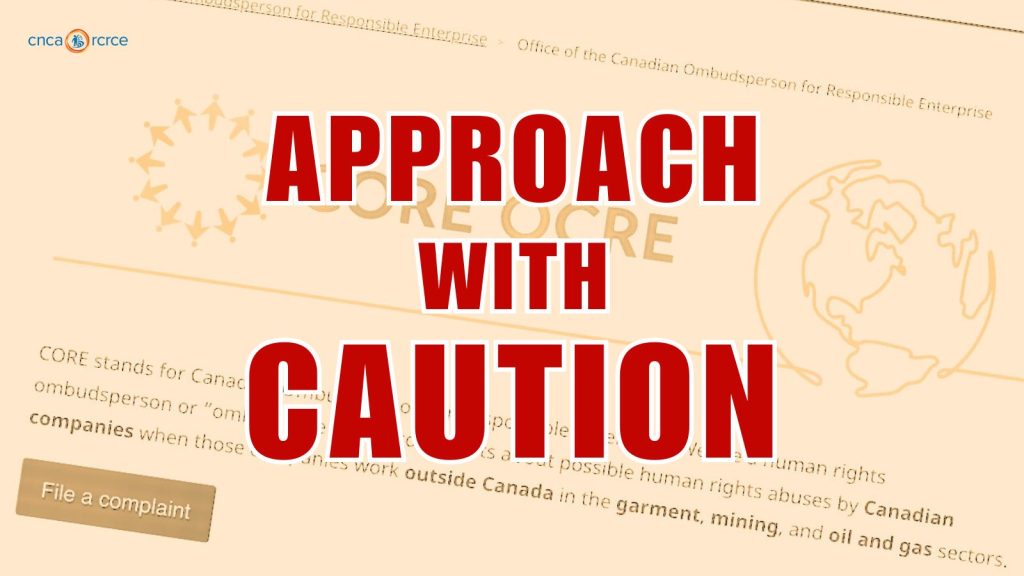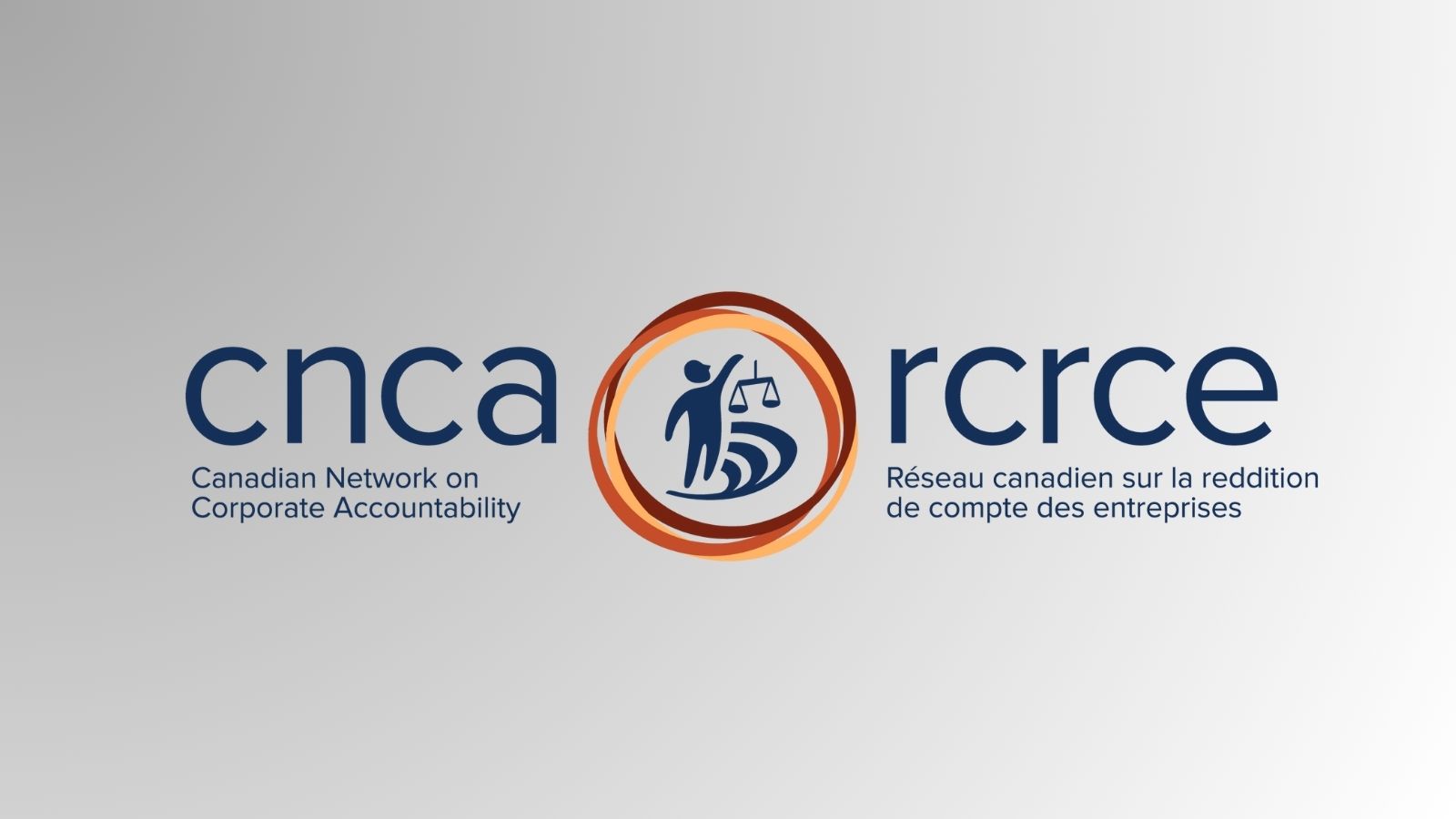In January 2018, the Canadian government announced that it would establish an independent Ombudsperson for Responsible Enterprise (CORE) with robust powers to investigate human rights abuses associated with Canadian corporations operating abroad. Canadian civil society groups welcomed this news, considering it a long overdue response to the repeated demands they and civil society organizations around the world had made for many years for the creation of such a mechanism.
However, the Canadian Ombudsperson for Responsible Enterprise (CORE), appointed in April 2019 is not the office that was promised. It does not have the promised mandate and powers required to effectively help communities harmed by Canadian companies defend their rights, access remedy or seek justice. The office has not been designed with the needs of impacted communities in mind. Much like the discredited, toothless corporate social responsibility offices of the past, it appears to have been designed with more concern for industry perceptions than with supporting the human rights of impacted communities.
Not what was promised
Canadian civil society advocated for an independent office that would:
- receive complaints,
- thoroughly investigate harm caused or contributed to by Canadian companies,
- publicly report on its findings,
- make recommendations for remedy for affected communities, including the withdrawal of government support to companies involved in wrongdoing, and
- make recommendations to prevent future harm, including regarding Canadian law and policy reform.
The Canadian government originally committed to doing just that. Instead, the government ceded to pressure from big business and created a meaningless title for a government official that acts as a special advisor to the minister.
Deficits of the CORE
The deficits of the office are fundamental:
1. No power to independently investigate
The power of any ombudsperson office comes from its ability to effectively investigate claims of wrongdoing. The minimum basic tool required to make investigations effective is the power to compel documents and testimony, so that the ombudsperson office does not depend entirely on the good will of the company accused of abuse to provide information that may confirm the abuse. This is the “teeth” of the office.
The government committed to providing such powers to the ombudsperson.
However, when it implemented the office over a year later, the government reneged on its promise. It has provided the CORE only with the power to offer mediation or undertake “reviews”. Both must rely entirely on the good will of transnational corporations to voluntarily share vital information that might implicate them in wrongdoing.
2. Not independent from government or big business
The CORE is not independent from government. The CORE and her staff are civil servants. The CORE offices are situated within Global Affairs Canada, a department of the Canadian government. The CORE reports directly to the Minister of Small Business, Export Promotion and International Trade.
Nor does it appear that the CORE will remain independent from big business. The CORE, like all ombuds offices, was intended to help mediate a power imbalance, in this case, the huge power imbalance that exists between large foreign companies and impacted communities. However, from the cabinet order that appointed the CORE, it appears that complainants may be required to use a process called joint fact-finding. This would give already powerful companies an effective veto over what issues are looked at, who examines them, and whether anything is made public.
3. Could represent a risk for complainants
To date there are no adequate safeguards to protect people who bring complaints to the CORE. The CNCA has seen no policies or provisions that explicitly address how CORE intends to protect complainants from retaliation for bringing complaints, apart from an assertion in its draft standard operating procedures that companies should not retaliate. The office has no policies on gender-sensitive or culturally-sensitive investigations. It is unclear whether sensitive information provided by impacted communities will be kept confidential from governments or the companies under review.
Should communities give it a try and see how it works?
Canada has a history of similar offices that have failed to support impacted people. At the former Corporate Social Responsibility (CSR) Counsellor’s office (2009-2018), for example, companies stonewalled requests for information. The CORE’s mandate is similar to Canada’s National Contact Point for the Organisation for Economic Co-operation and Development Guidelines for Mulinational Enterprises (NCP), which is listed on the CORE’s website as a “partner”. Communities and workers have found that complaints to Canada’s NCP yield no improvement to their situation and sometimes even make their situation worse [1], after consuming months or years of community time and resources.
Neither these nor other identified weaknesses have been addressed in the new office. Given the blatant about-face of the Canadian government on its commitments regarding the establishment of the CORE, there is currently no reason for communities to believe it will prove to be more effective than the offices that have preceded it.
[1] Examples of how communities have experienced bringing complaints to Canada’s NCP are available in Spanish: https://aboveground. ngo/wp-content/uploads/2017/01/Canada-is-back-Summary-SPANISH.pdf and in English: https://miningwatch.ca/sites/default/files/ miningwatchcanadasubmissiontoncppeerreviewjanuary2018.pdf (especially at p.39 where they talk about 3 cases)
Why the CNCA created this document
In early 2020, members of the Canadian Network on Corporate Accountability (CNCA) learned that the office of the Canadian Ombudsperson for Responsible Enterprise (CORE) was planning to travel to Colombia and Brazil without having consulted with local communities or human rights defenders prior to booking the trip. As a result, the CNCA felt it necessary to produce information for impacted communities so that they could make informed decisions about engaging with the ombudsperson.
CNCA members were particularly concerned because the CORE’s itinerary included a visit to a controversial project site, at the request of the company, with no evidence of prior consultation or input from affected communities about how such a visit might impact their safety, security and respect for their rights. The CNCA wanted to make clear to its global partners that the CORE that we now have in Canada is neither the office that civil society celebrated in January 2018, nor that Canadian groups and impacted communities have demanded for over a decade.
Note: As a result of the Covid-19 pandemic, the CORE postponed its planned trip to South America. The CORE office is not yet open to receive complaints, no date has been set for its opening. The CNCA has requested the CORE take this opportunity:
- to advocate for the robust powers it requires to undertake effective and fair investigations of community complaints, and
- to establish rights-based protocols to guide decision-making for its future international missions.
CNCA correspondence with the office of the Canadian Ombudsperson for Responsible Enterprise, including our concerns on the South America trip, is posted on our website at this link.
Background
April 8, 2020 marked one year since Canada’s Minister of International Trade Diversification announced the appointment of Sheri Meyerhoffer as his special advisor, to be known as the Canadian Ombudsperson for Responsible Enterprise (CORE). The appointment revealed that the Canadian government had reversed its January 2018 public announcement of an independent office with robust powers to investigate. Instead, the minister announced a time-bound external legal review to examine how to provide the CORE’s promised investigatory powers, including the power to compel documents and summon witnesses. The minister stipulated that the CORE’s powers would be made public within four to five weeks.
No such announcement was made, and a full year after the CORE was appointed, the CORE remains a powerless advisory post, little different from the previous discredited Corporate Social Responsibility Counsellor. It can do little to deter Canadian complicity in corporate abuse or ensure Canadian garment supply chains and mining, oil and gas operations respect human rights and the environment.





